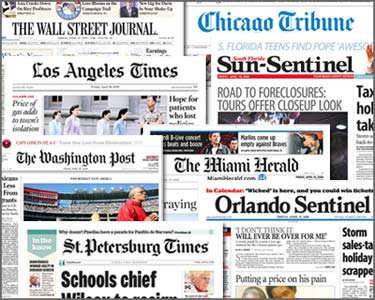I just wanted to share this article I stumbled across in today’s Guardian regarding the copyright implications and complications provoked by the British Library’s seemingly innocuous decision to begin digitizing large portions of it’s newspaper holdings.
The basic parameters of the British Library’s mission, according to assistant director Patrick Fleming, is to:
“digitise newspapers from before 1900 – which should be out of copyright because the copyright in a newspaper article extends to the life of the writer plus 70 years. Meanwhile, Fleming says, “any newspaper published after 1900 will only be made available with the consent of the copyright owner”. Once digitised, newspapers will be made available free “in the British Library reading rooms”, matching today’s print-based model, and online via ‘a micropayment website'”
This proposed model has drawn criticism from newspaper owners such as News International’s James Murdoch who have accused the Library of undertaking the project for commercial gain.
I believe that it is a duty for libraries, and by extension librarians, to protect and preserve access to newspapers because they constitute such a crucial and integral part of the historical record, but I can also understand the concerns of publishers and proprietors such as News International regarding free and unfettered access, even though this particular article suggests that the British Library is adhering to all relevant laws.
Relevancy is going to be the key going forward, as the statute Mr. Murdoch based his criticisms of the library’s actions on dates back to 1710. Such laws will have to be updated to reflect new methods of providing, consuming and accessing information.
There are many, many interesting layers and nuances to this issue and I anticipate a wide-ranging debate as we attempt to keep information accessible within the parameters of a fair and just copyright law that has been updated to conform to the ever-changing realities and demands of the digital age.
-DJS
